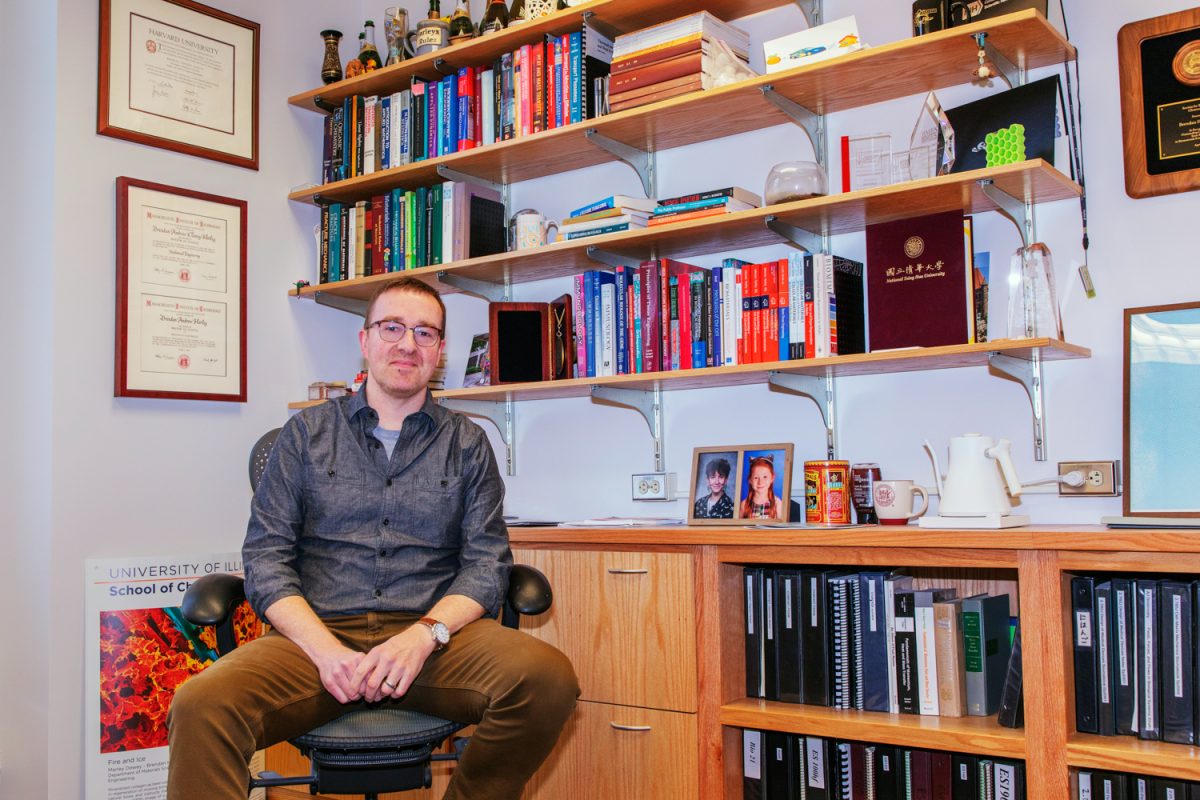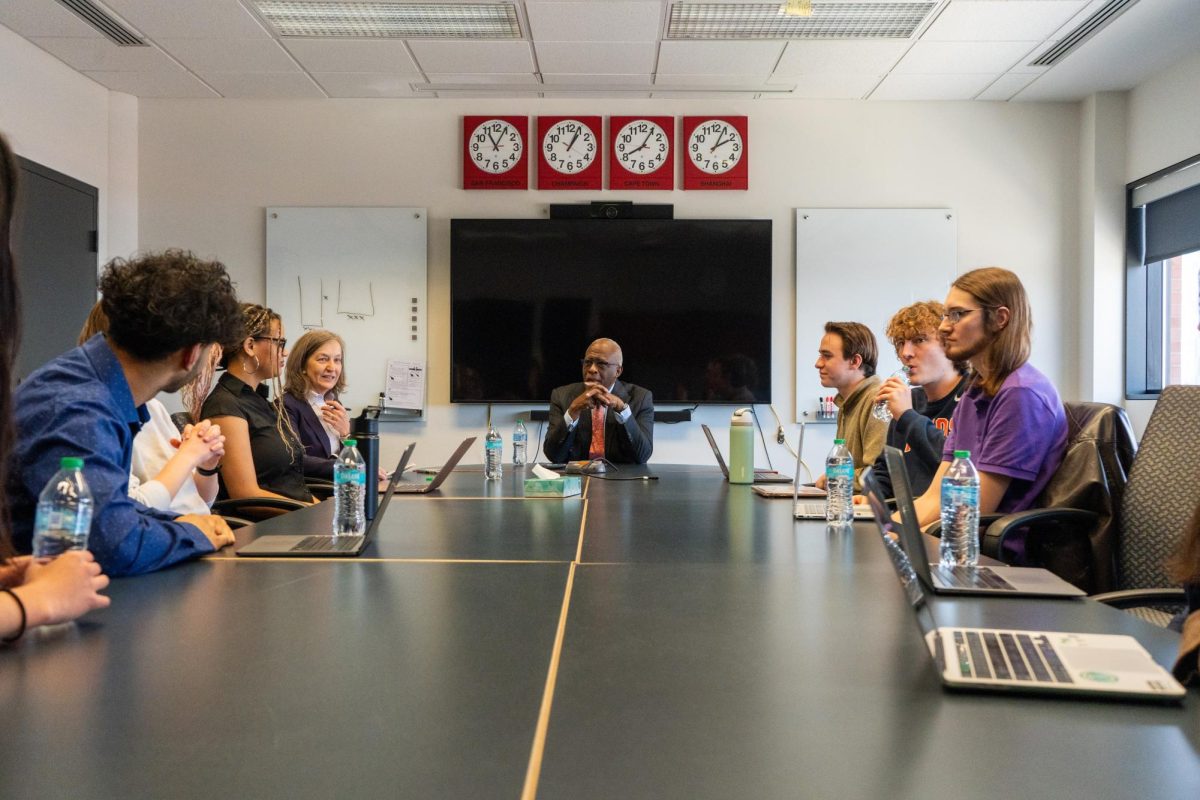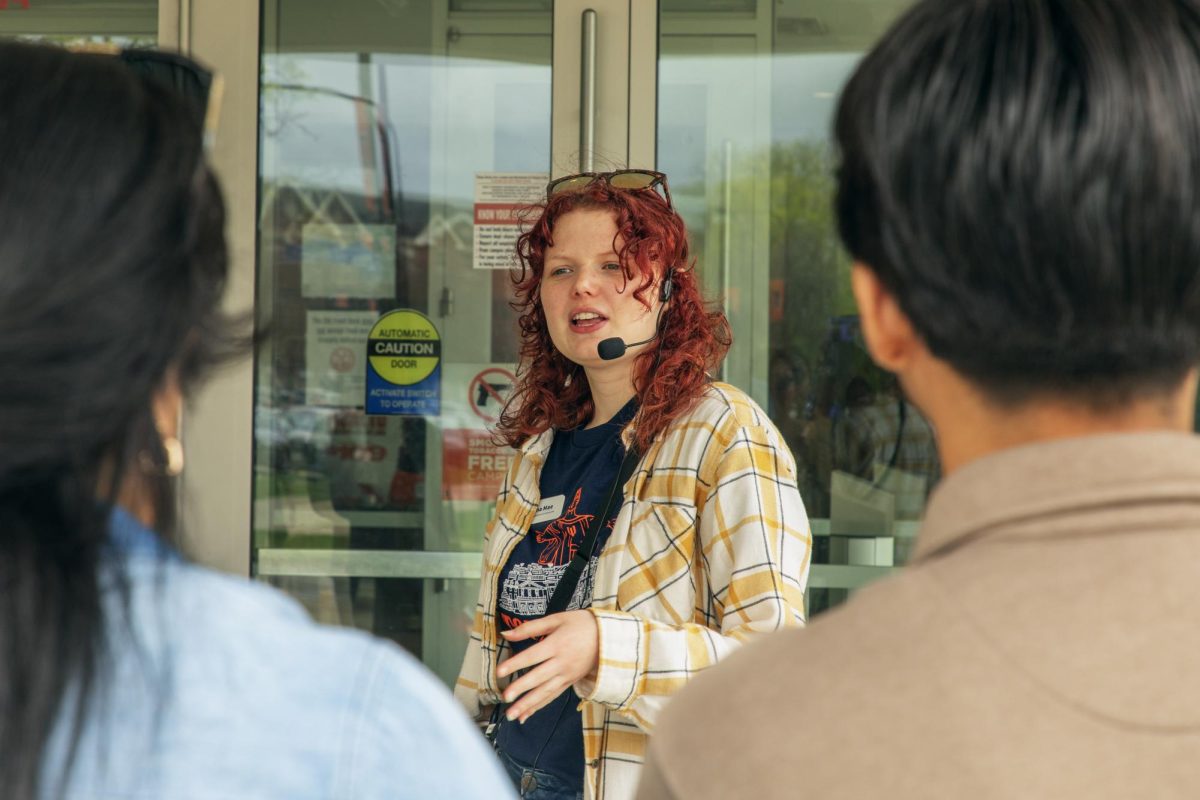“Never give up” is a phrase that has inspired many, including Brendan Harley, a professor of chemical and biomolecular engineering at the University, who battled acute leukemia at 17.
Following his diagnosis, Harley underwent intense chemotherapy and a bone marrow transplant at Brigham and Women’s Hospital in Boston, Mass. While hospitalized, he noticed that many doctors had engineering backgrounds. This early introduction sparked his interest in merging medicine and engineering.
“A lot of mid-twenties doctors or MD students, and a bunch of them had been engineers,” Harley said. “It got me thinking, ‘maybe there was a future for putting engineering and health together.’”
Now, 30 years later, Harley has turned that thought into reality. His research focuses on tissue engineering and methods to regrow tissue.
“Half my group works on designing biomaterials that can be put in the body to regenerate tissues,” Harley said. “They’re typically musculoskeletal, rotator cuff, craniofacial bone defects, so after cleft palates, repair, after traumatic injuries, after cancer resections, ‘how do you grow back large amounts of tissue?’”
Get The Daily Illini in your inbox!
There are challenges with researching deadly diseases like brain cancer. Despite this, Harley emphasized the importance of supporting future advancements in cancer treatment. He also acknowledged the profound impact on patients and their loved ones.
“I think it’s always important to support the next generation of studies,” Harley said. “One of the things I’ve learned being part of the cancer research community is that the work we do today benefits the population of cancer patients a generation from that, like the basic science work to understand mechanisms, to identify new drugs.”
Harley plans to run the Boston Marathon on April 21, fundraising for cancer research. The fundraiser’s website says every dollar raised directly contributes to studies conducted at the Dana-Farber Cancer Institute.
“Raising money for the basic cancer research that’s done at Dana-Farber, I think it’s an incredible opportunity to support cancer for everything from $1 to whatever people want to give,” Harley said. “It’s a great chance to support the research that changes the lives of people with cancer now and into the future.”
Growing up in a suburb of Boston, Harley ran cross country in high school. After college, he went back to running in hopes of being able to run marathons.
“I’ve been running a lot,” Harley said. “I think this is close to 20 marathons I’ve run over the years. It’s an act of persistence to run a marathon, which speaks to my experience as a patient.”
This year’s Boston Marathon carries special meaning for Harley, who received life-saving treatment in the city decades ago.
“I’ve run in a number of years to support research through the American Cancer Society, but running Boston this year was a chance to raise money, and Dana-Farber is one of the medical research and and hospital facilities in Boston,” Harley said. “My bone marrow transplant was actually at Brigham and Women’s Hospital and Dana-Farber, and so they were part of the treatment process that saved my life 30 years ago.”
In Harley’s research lab, Génesis Ríos-Adorno, a doctoral student studying musculoskeletal tissues, conducts her research with a focus on combining different materials to regenerate the tendon-to-bone transition.
“(Harley) is very open and willing to let you do your own research and follow your own interests,” Ríos-Adorno said. “He’s very supportive of my projects, not limiting me on what I need to do or what he wants me to do. He’s very open in that sense.”
Ríos-Adorno praised Harley’s ability to understand her situation and how that could affect her research.
“He looks into you as a person and not only you as a student, but as someone who doesn’t have you as just a worker, but as a person that actually has feelings,” Ríos-Adorno said. “He’s very understanding of that, and he gives you the space to work around it.”
Alison Nunes, a research scientist in the MatSE department and Harley Lab, is collaborating with a research physician to study Ehlers-Danlos syndrome, a hereditary connective tissue disorder. Like Ríos-Adorno, Nunes appreciates the space and support provided by Harley for her research.
“As a research scientist in the lab, (I have) to learn a bunch of new skills to build a project from the ground up,” Nunes said. “(I appreciate) … having the space but also the support from him to just grow a whole bunch of skills that I didn’t have before I joined.”






